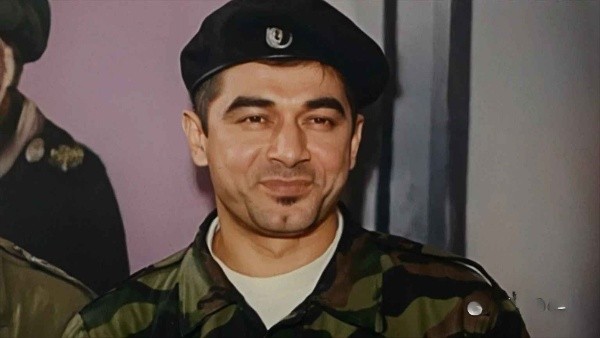Iran’s Plan to Strike Back Against the U.S.
Iran’s Military Preparations Following U.S. Attacks
Loading...

The Palestinian resistance movement Hamas has denounced as “a foolish act” the Israeli regime’s assassination of a top Hezbollah commander in the Lebanese capital, Beirut, warning that Tel Aviv will pay the price for the crime.
Israel's Assassination of Hezbollah Commander Sparks Outrage
The Palestinian resistance movement Hamas has condemned the recent assassination of a prominent Hezbollah commander, Ibrahim Aqil, by Israeli forces in Beirut. This act has been labeled a “foolish act” by Hamas, which warns that Israel will face severe repercussions for its actions.
Hamas's Strong Condemnation
In a statement released on Saturday, Hamas expressed its outrage following the announcement from Hezbollah regarding the assassination of Aqil. The group emphasized that this act of violence by the Israeli regime would not go unpunished. “We affirm that this crime committed by the occupation is a foolish act for which it will pay a heavy price,” the statement read. Hamas further declared that the blood of Aqil, along with that of other martyrs from the Palestinian and Islamic nations, would ignite a fierce resistance against what they termed an “artificial entity” — a reference to Israel.
Hamas also highlighted the significance of Aqil's assassination as a unifying factor between Hamas and Hezbollah, reinforcing their shared commitment to the struggle against Israeli occupation. The group expressed gratitude to Hezbollah for its continued support of the Palestinian cause, particularly in light of the ongoing violence faced by Palestinians.
Details of the Attack
The Israeli strike that led to Aqil's death occurred on Friday, targeting a residential building in a densely populated area of Beirut. This attack resulted in numerous casualties, including women and children, raising concerns about the humanitarian impact of such military actions. Hezbollah confirmed the loss of Aqil, who had been a key figure in the organization since the 1980s, overseeing operations against Israel. His death follows the assassination of another commander, Fuad Shukr, in a similar Israeli operation in July.
Regional Reactions and Implications
The assassination has drawn sharp criticism from various Lebanese officials. Ali Hamieh, the Caretaker Minister of Public Works and Transport, condemned the attack, asserting that Israel is “dragging the region into a war.” He characterized the strike as a war crime, emphasizing that it violates international laws governing armed conflict.
The escalation of violence comes in the context of Israel's intensified military operations in Lebanon, particularly since the onset of its campaign against Gaza on October 7. Hezbollah has responded to these provocations with numerous retaliatory strikes, aiming to support the Palestinian people and counter Israeli aggression.
A Broader Context of Conflict
The assassination of Ibrahim Aqil is not just a singular event but part of a larger pattern of violence and retaliation in the region. The ongoing conflict has seen both sides engaged in a cycle of attacks and counterattacks, with civilian populations bearing the brunt of the violence. Hamas's statement underscores the potential for this incident to escalate tensions further, as they vow to continue their struggle against Israeli occupation.
As the situation develops, the implications of this assassination could reverberate throughout the region, potentially leading to increased hostilities and a further deterioration of the already fragile security landscape in Lebanon and beyond. The unity expressed by Hamas and Hezbollah in the wake of Aqil's death may signal a strengthening of ties between the two groups, which could have significant ramifications for future conflicts in the region.
Editor
Iran’s Military Preparations Following U.S. Attacks
Troops remain in five strategic locations, raising fears of renewed tensions and long-term occupation.
Opposition forces have taken control of the capital after a significant offensive. Here is how it unravelled.
